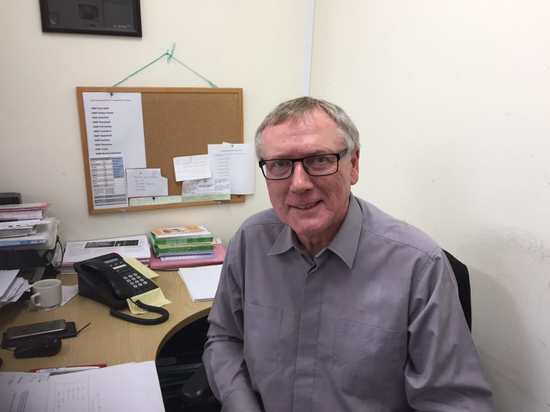A time to keep
June 12, 2023 Blog
Fifty years ago this week, I was ordained into an optimistic Church. There was still something of the afterglow of Vatican II, when it looked like a new model of Church was emerging. In the words of the poet, Padraig J Daly, "We began in bright certainty". Now, fifty years on, it looks more like we are "Waving our tattered flags after the war,
Helping the wounded across the desert". (The Last Dreamers)
In my case, the "bright certainty" led me, in June 1973, to a new and growing suburb in north Belfast, during the worst decade of The Troubles. The five years I spent there were a baptism of fire in the course of which several sectarian killings took place, including that of a close friend. Extra-curricular pastoral activity included regular visits to the Republican prisoners at Long Kesh with a small group of priests who were (and continue to be) my role models. Certainly, nothing I had learned at Maynooth prepared me for what I experienced during that time. I'm on record as saying that I packed more pastoral and varied experience into those five years than many priests pack into a lifetime of ministry. Without realising it, I became radically politicized by my experiences there.
After five years in Glengormley, I left Belfast for London to take over from the late Bruce Kent as chaplain to the British section of Pax Christi, the Catholic peace movement. My work there included preaching at parish Sunday masses throughout the country on peace and justice themes as well as helping to produce publications on issues like the arms race, the spirituality of peacemaking, the theory and practice of non-violence, Northern Ireland, South Africa and East-West dialogue with the Russian Orthodox Church.
Attendance at conferences, seminars and meetings at home and abroad, meant that I got to meet with some iconic names in the peace movement, including Jim Forest, the Berrigan brothers, Jim Walllis of the Sojourners movement and others who had met with Dorothy Day and Thomas Merton. On a lighter note, an abiding memory is of trekking along the muddy perimeter of the Upper Heyford airbase in Oxfordshire, protesting against the deployment of American Cruise missiles.
An unforgettable memory was the visit to the splendid Monastery of St Sergius Lavra at Zagorsk in Russia as part of a four-man Pax Christi International delegation to engage in dialogue with priests of the Russian Orthodox Church. This week-long meeting gave me an invaluable insight into that Church and how it prioritises its liturgy over social and political concerns.
Then there was the Pax Christi sponsored six week long tour of the major cities and townships of South Africa to learn about the harsh reality of apartheid from people like Archbishop Denis Hurley, Bishop Desmond Tutu and the family of the murdered activist, Steve Biko. Closer to home, there were the two significant meetings with the leadership of the IRA in Dublin and the UDA in east Belfast. I think I may still be the only Catholic priest ever to visit the UDA headquarters in east Belfast! As a vice president, I continue to work with Pax Christi, mostly in relation to Northern Ireland.

My next work experience was as chaplain to the staff and students at La Sainte Union College of Higher Education (LSU) in Southampton. I found the intellectual life there exhilarating and the interaction with staff and students did much to clarify my thinking on the teachings of Vatican II and a future model of being Church. A highlight of my time there was the year I spent teaching literature and religion in the theology department. After six years there, I was having breakfast one morning in the presbytery I shared with a parish priest in north London, when the Irish Commission for Prisoners Overseas (ICPO) came knocking on my door. And the rest, as they say, is history.
This third period of my ministry in England has turned out to be the longest and continues to this day. I could little have imagined when I used to visit prisoners in Long Kesh that I would later spend the best part of thirty years working with Irish prisoners and their families in England and Wales. This work has given me a rare insight into how people at the bottom of society's pyramid cope with life and has profoundly enlightened my own theological and political thinking.
My pastoral ministry with the prisoners, the Travellers and elderly Irish people has helped me to understand the Christian vocation and its impact on social and political realities in a more profoundly "political" way than ever before. I think of the Chaplaincy as my parish community and for me it represents the Church in miniature - a base community of sorts comprising some of the most vulnerable people in society. I have been singularly fortunate throughout my ministry in having met with many truly remarkable people from every walk of life. I will be forever grateful for their friendship and for all I have learned from them.
I now believe that the mystery of the Gospel is that we are called to live in a certain way even if the social/political change worked for is unlikely or even impossible. Maybe it's also part of the mystery that the only way we can make the future different is by living the present differently.
All in all, it's been a memorable odyssey. Definitely, a time to keep!

